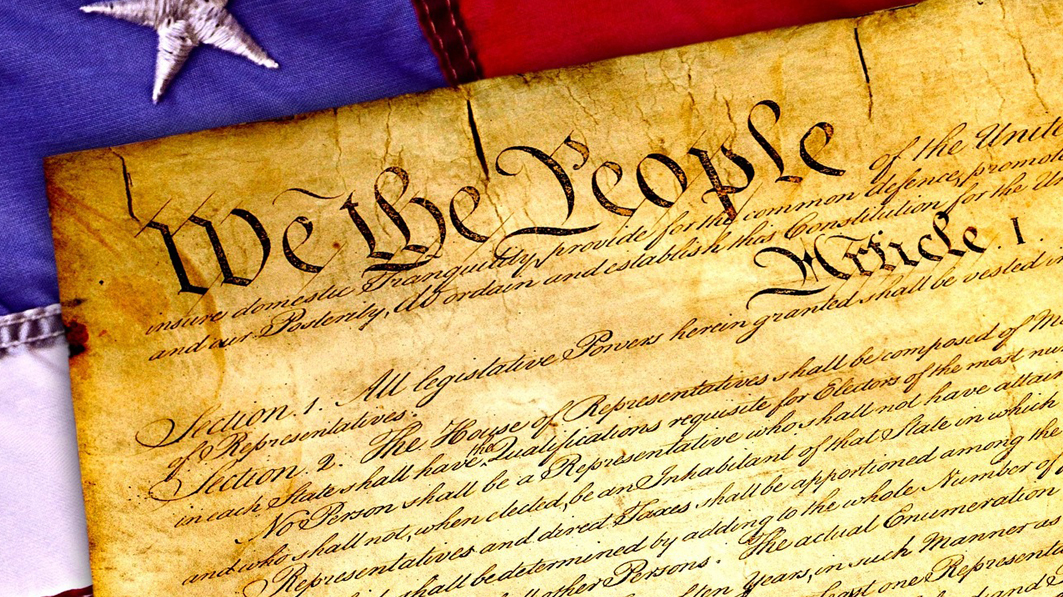A decision out of the 10th U.S. Circuit Court of Appeals this week has everyone reaching for their copies of the U.S. Constitution to re-read the provisions concerning the Electoral College found in Article II, Section 1, as revised by the 12th and 23rd Amendments.
The appeals court was faced with a situation arising from Colorado’s vote in the presidential election of 2016, where Hillary Clinton won the state’s popular vote. In a presidential election each state’s voters actually vote not for the candidate directly, but for a slate of “electors” attached to each candidate who pledge to vote for that candidate if they are the state’s winner of the presidential popular vote.
Then, following the election, according to the Constitution’s rules, they meet on a date certain in December, to cast their votes for President and Vice-President. 270 votes are required for victory. The number of electors in each state is equal to the number of that state’s U.S. Senators (2), plus the number of its representatives in the U.S. House of Representatives. Each state’s electoral votes are then counted in a joint session of Congress on January 6, and the winner is announced.
On election night, media coverage is always keen to add up the number of electoral votes each presidential candidate is receiving as each state reports its vote totals. News outlets routinely project the winners based on how those electoral votes should be cast at the state level. But what if they’re not? There’s actually a name for this phenomenon: “faithless electors.”
One of Colorado’s 2016 electors, Micheal Baca, who was required under Colorado law to cast his vote for Clinton (the state popular vote winner), actually cast his vote for Republican John Kasich instead, as part of a loosely organized national effort to keep Donald Trump out of the White House by denying him 270 votes. If successful, it would have thrown the 2016 election into the Republican-controlled House of Representatives where, theoretically, that body might vote for Kasich, or anyone else who received votes from the Electoral College.
But Colorado Secretary of State, Wayne Williams, citing Colorado law, then removed Baca as an elector, and appointed someone else in his place. Baca brought suit, claiming his federal civil rights were violated.
The 10th Circuit ruled that Baca could not be removed as an elector, and was entitled to cast his vote as he saw fit. The court held that federal law, i.e., the Constitution, preempts state law in the matter of presidential elections. And the Constitution does not contain a mandatory requirement that electors vote for the candidates they are pledged to, nor does it delegate to the states the authority to mandate it.
Is this 10th Circuit decision good or bad for the country?
On the one hand, we want certainty in our presidential elections. Don’t “faithless electors” pose a threat to the Electoral College outcome? Not really, no. Our history shows so few of these unexpected votes over the past two centuries that it is highly unlikely they could ever change the course of an election—because none ever has. The reason for their rarity goes back to how electors are chosen. They are typically well-known members of each political party, and are selected at each party’s state convention. They are the last people one might expect to abandon their support for their party’s presidential candidate and vote for someone else, even in the extreme situation that we faced in 2016 where there was a concerted effort of some kind to throw a monkey wrench into the election results.
On the other hand, there could be a net benefit from this decision to the continuing vitality of the Electoral College system. According to one election law expert, this decision completely undermines the current partisan Democrat attempt—known as the National Popular Vote Interstate Compact—to bypass the Electoral College altogether. That effort has advanced by getting blue states to pass laws pledging all their electoral votes to the winner of the national popular vote, even if their state’s voters chose someone else. Mark Meuser, an election law attorney in California, noted for the Daily Wire in discussing the 10th Circuit decision that, “If a state cannot require that its delegates vote in accordance with its own state’s popular vote, it will therefore also never be able to require that its delegates vote in accordance with the nation’s popular vote.”
It would be a happy irony indeed if the effort to derail the Electoral College in the 2016 elections actually helped solidify its continuing efficacy.
The 10th Circuit decision will almost certainly be appealed to the U.S. Supreme Court. We’ll keep you apprised of further developments in the case.
The case is Baca v. Colorado Department of State.






